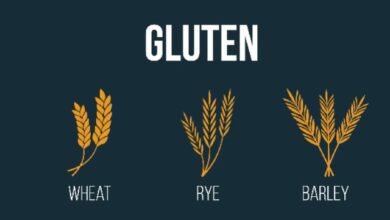Is Mochi Halal
Mochi, a traditional Japanese rice cake made from glutinous rice, is renowned for its chewy texture and versatility. Its preparation involves pounding steamed rice into a sticky dough, which can be shaped and filled with various sweet or savory ingredients. As mochi gains popularity worldwide, many Muslim consumers wonder if this delightful treat aligns with halal dietary requirements. This article explores whether mochi is halal, delving into its ingredients, preparation process, and where to find halal-certified options.
Understanding Mochi

Ingredients and Preparation
Traditional mochi is made from:
- Glutinous Rice (Mochigome): The primary ingredient providing the unique chewy texture.
- Water: Used for soaking and steaming the rice.
However, variations of mochi may include additional ingredients such as:
- Sweeteners: Like sugar or sweetened red bean paste.
- Fillings: Such as fruit, matcha paste, or savory components.
- Flavorings: Including soy sauce, soybean powder, or yomogi (a Japanese herb).
Halal Considerations
For mochi to be considered halal, it must meet specific criteria:
- Ingredients: Must be free from haram substances such as pork derivatives, alcohol, and non-halal gelatin.
- Preparation Process: Should avoid contamination with non-halal ingredients and use equipment that is clean and free from haram substances.
Common Concerns
Gelatin and Dairy
Some mochi varieties, especially those with fillings or used in mochi ice cream, may contain:
- Gelatin: Often derived from animal collagen, which can be from non-halal sources.
- Dairy Products: Such as milk powder or cream, which need to be halal-certified.
Alcohol-Based Flavorings
Certain traditional Japanese recipes include mirin, a sweet rice wine. Even though it contains a small amount of alcohol, its use can render the product non-halal.
Ensuring Halal Compliance
To ensure the mochi you consume is halal:
- Check Ingredients: Always read labels carefully. Look for clear indications that the product is free from non-halal substances.
- Halal Certification: Opt for brands that are certified by recognized halal authorities. This certification ensures that the product complies with halal standards from preparation to packaging.
Where to Buy Halal Mochi
Halal-certified mochi can often be found in:
- Specialty Asian Stores: Some stores specifically stock halal products.
- Online Retailers: Websites specializing in halal foods often offer a variety of halal mochi options.
- Certified Brands: Brands like Koeido are known for their halal-certified mochi products.
Frequently Asked Questions
What are the main ingredients of mochi?
Mochi is primarily made from glutinous rice (also known as sticky rice or sweet rice) and water. Sometimes, sugar and cornstarch are added to improve texture and taste. Some variations may also include flavorings or fillings such as red bean paste, matcha, or fruit.
Is mochi suitable for vegetarians?
Generally, mochi is vegetarian as its main ingredients are plant-based. However, it is essential to check the ingredients list, especially for packaged mochi, as some versions may contain animal-derived ingredients like gelatin or certain food colorings.
Is there a vegan version of mochi?
Yes, vegan mochi is available. These versions typically avoid using any animal-derived ingredients and instead use plant-based substitutes. Always check the label to ensure the product is certified vegan.
Can mochi be found gluten-free?
Traditional mochi is naturally gluten-free since it is made from glutinous rice. However, some flavored or packaged mochi products may contain gluten as part of their additional ingredients. Always verify the packaging for gluten-free certification.
How should mochi be stored?
Mochi should be stored according to its type. Fresh mochi can be kept at room temperature for a day or two but should be refrigerated for longer storage. Frozen mochi should remain in the freezer and thawed slightly before consumption.
What is the texture of mochi like?
Mochi has a unique chewy and sticky texture due to the glutinous rice. It is soft and pliable when fresh but can become harder if not stored properly.
Are there any health benefits to eating mochi?
Mochi is a good source of carbohydrates and provides some essential nutrients from the glutinous rice. However, it should be eaten in moderation as it can be high in sugar, especially in sweetened versions.
Can I make mochi at home?
Yes, making mochi at home is possible and can be quite simple with the right ingredients and tools. Many recipes and tutorials are available online, guiding you through the process step-by-step.
What is mochi ice cream?
Mochi ice cream is a popular variation where a small ball of ice cream is wrapped in a layer of mochi. It combines the chewy texture of mochi with the creamy taste of ice cream, creating a unique dessert experience.
Is mochi halal?
Mochi can be halal if it does not contain any non-halal ingredients such as certain gelatin types or alcohol. It is crucial for Muslims to check for halal certification or scrutinize the ingredient list to ensure compliance with dietary restrictions.
Where can I buy halal-certified mochi?
Halal-certified mochi can be found in certain specialty stores, online retailers, and some Asian grocery stores. Brands like Koeido offer halal-certified options. Checking with local halal stores or online marketplaces can help locate these products.
Are there any risks associated with eating mochi?
Due to its sticky and chewy nature, mochi can pose a choking hazard, particularly for the elderly and young children. It is essential to eat mochi in small, manageable bites and chew thoroughly before swallowing.
What flavors of mochi are available?
Mochi comes in a variety of flavors, from traditional ones like red bean and matcha to more contemporary ones such as chocolate, strawberry, and mango. Mochi ice cream also offers numerous flavors, combining classic and innovative tastes.
Can mochi be part of a healthy diet?
Mochi can be included in a balanced diet, but it should be consumed in moderation due to its high carbohydrate and sugar content. Opting for less sweetened or natural versions can help make it a healthier choice.
How is mochi used in Japanese culture?
Mochi has a significant role in Japanese culture, especially during celebrations like the New Year (Oshogatsu) and other festivals. It is often enjoyed in traditional dishes like ozoni (a soup with mochi) and kinako mochi (mochi with roasted soybean flour).
Conclusion
Mochi can be a delicious and halal-friendly treat if it meets the necessary dietary criteria. By paying attention to ingredients and choosing halal-certified options, Muslim consumers can enjoy this unique Japanese dessert without compromising their dietary beliefs.
Read also: Red Steakhouse Menu Prices





